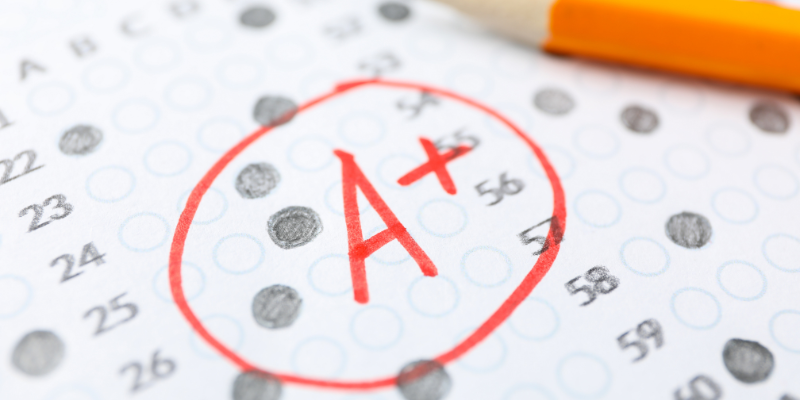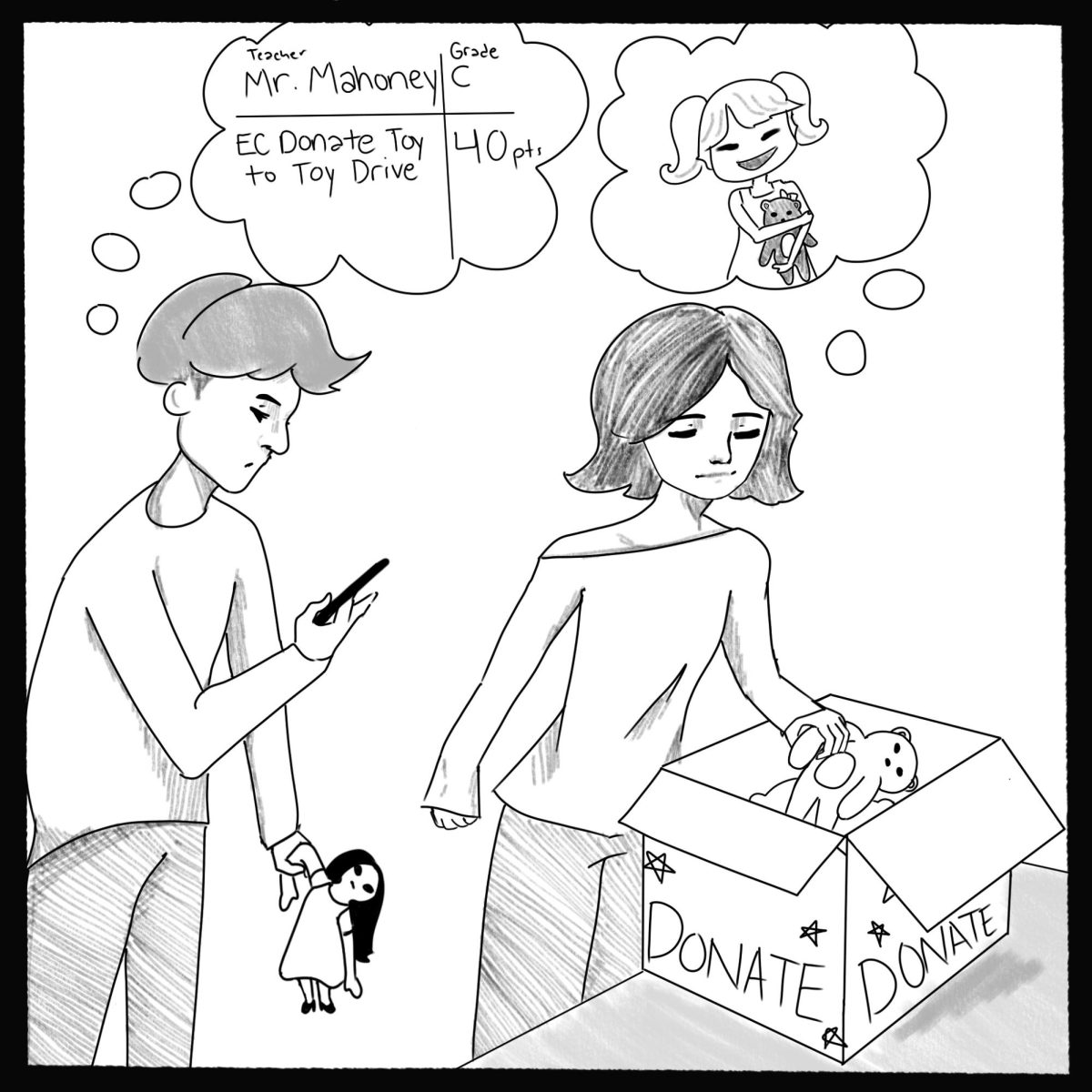In recent years, the American classroom has reached a new low: student performance has been dismal in the face of COVID disruptions, schools are struggling to hire and retain teachers, and increasingly entitled parents are chipping away at the integrity of our education system. That “new low” is not just sensational rhetoric; the “Nation’s Report Card,” published by the National Assessment of Educational Progress in 2023, revealed test scores at their lowest level in 30 years, with math at 1990s levels and reading at 1970s levels. History scores were the lowest of all time. Yet, according to a study conducted by the ACT, the average high school GPA has increased from 3.22 in 2010 to 3.39 in 2021 (up from 2.68 in 1990).
Despite students’ low achievement, good grades have been soaring in an effort to appease kids, parents, and administrators. To inflate grades, schools have adopted a variety of peculiar changes to grading practices that in turn create a more lax learning environment. Among these changes: prohibiting Ds and Fs in several school districts across California, a 50% minimum policy for all assignments (even if the work was not turned in), ditching the 100-point scale for “standards-based grading,” and allowing retakes. These new policies often fall under the guise of “grading for equity,” a movement designed to help students in difficult conditions still receive good grades.
While these efforts might be well-intentioned, they do not accurately reflect where our students are: far behind in both performance and work ethic. Rather than softening standards to fix public education’s achievement image problem, tough grading practices can actually serve as the catalyst for getting students back on track. Conducive to a no-nonsense learning environment necessary for COVID recovery, strict grading prepares students for the real world and motivates them to work hard.
The primary benefit of strict grading practices is that it leads to better performance among students. A study conducted by Brown University showed that students who had teachers with tougher grading received higher scores on an end-of-year algebra exam.
Another study from the Thomas B. Fordham Institute backed this up, with students who had teachers categorized as “highest standards” graders scoring nearly 17% better than the average on standardized tests. In yet another example, Education Next researchers found that 65% of students with tough-grading teachers scored a 4 or 5 (out of 5) on the Florida Comprehensive Assessment Test, compared with only 32% of students with easy-grading teachers. “There really is a persistent, long-lasting sea change that students experience when they have a tougher grader,” Seth Gershenson, an author of the Brown University study, said about its findings.
While studies and statistics like these help make the case for stricter grading practices with regard to academic performance, the long-term effects of leniency are possibly even more important. The new wave of grading reform treats school like a temporary phase in a student’s life rather than as a stepping stone into the working world. Softer grading practices offer no reflection or preparation for the “real world.” Theoretically, at a real job, you can’t turn in your work late, redo your work when it is sloppy, or receive a raise just for the purpose of getting a boost.
Teacher and education analyst Emily Langhorne summarized these issues best in a column for The 74: “Not only do these policies create extra work for already overworked teachers, they also promote an attitude of low expectations that does a disservice to our students in the long run. They teach students that deadlines aren’t important, that you can receive half the credit for none of the work, that achievement is detached from practice, and that you can always bank on a second chance.”
In addition, the same education figures that advocate growth mindset and trial by error also want Ds and Fs eliminated. Aren’t kids supposed to learn from failure? Lenient grading removes an incentive in getting kids to work hard by reducing the chance of failure and reflecting an artificial sense of accomplishment. A student who is all but guaranteed an A won’t just do a bunch of algebra problems for fun. Columnist and education advocate James Burns recognizes that strict grading can be used as a way to provide accountability and give students an accurate measurement of their progress, thus motivating them to work harder. “Kids can’t be given a false sense of their abilities in grade one by being given good grades for their work because by the time they reach the second or third grade they will discover just how much they don’t know leading to low self esteem and ultimately fear of failure,” he wrote in an article for Bully Proof Classroom.
Proponents of lenient grading reforms argue that public education is in need of modernization, with a new way of looking at performance and the learning process. The general attitude among these education reformers is not necessarily bad—addressing stress and mental health and using reduced penalties—but it is not realistic. Executing a new vision of education with drastic changes like the elimination of Ds and Fs or the complete excusal of late work does nothing to benefit students in the long term. So even though it might be politically incorrect or old fashioned to support the “traditional” way of grading, that traditional method is precisely the reality check we need to support a strong work ethic and high performance among students. Remember, high standards lead to positive results.
The solution goes beyond simply reinstating traditional grading. We must end grade inflation by addressing the epidemic of vicious parent attacks on teachers and ensure that our administrators support teachers in holding students accountable.
American school students are not fragile toys. They can and should be held to high standards and be accountable for meeting them. What are we so afraid of?































TF • Feb 3, 2024 at 11:10 AM
As a student, I feel cheated. It’s crazy that our performance is lowering yet our scores are rising and it makes me fear for my own future and how well i will fare outside of school with regular job expectations. It is sad that teachers aren’t well respected enough to even do their job even though they are quite literally raising the next generations for society.